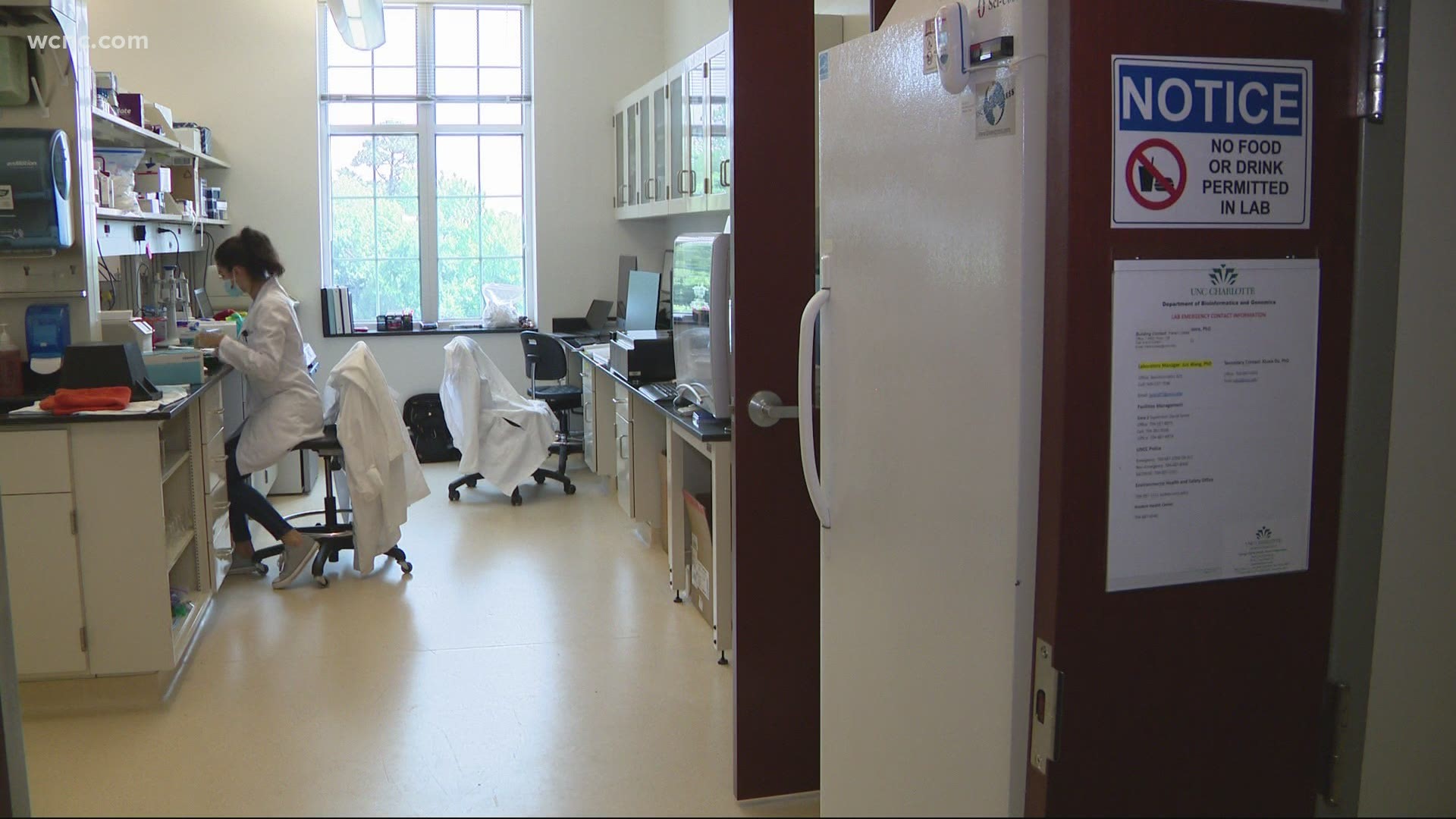CHARLOTTE, N.C. — The more contagious delta variant is now the dominant strain of COVID-19 in the country, state, and Mecklenburg County.
The latest data shows delta accounts for at least 62% of positive COVID-19 cases in Mecklenburg County. That information was determined by scientists studying the genetic makeup of the virus right on the University of North Carolina at Charlotte’s campus. It's all part of a partnership between UNCC, StarMed Healthcare and the Mecklenburg County Health Department.
Genomic sequencing is a scientific process of studying the makeup of a virus to determine what mutations occurred in the RNA and therefore, what variant of the virus it is.
Hundreds of positive tests from the county and StarMed are sent to the Bioinformatics and Genomics Lab on UNC Charlotte’s campus each week. It's the only lab in the area doing genomic sequencing.
Genomic sequencing is a complicated, long process, but is vital to determining which variants are spreading in the community, so the county has the information needed to guide which health and safety protocols need to be in place. Plus, this work gives county health leaders the ability to stay ahead of the curve.
“If there’s something that’s going to outcompete delta, you want to know when it hits the community. And the reason you want to know that is so you can start taking more precautions again,” Cynthia Gibas, a Bioinformatics and Genomics Professor at UNC Charlotte, said.
Gibas and associate professor Jessica Schlueter are running the lab.
They can run hundreds of sequences at a time, and sequence about 200 tests each week.
“We don’t have to wear masks when we go to the grocery store anymore, we're really not socially distancing,” Schlueter said. “We have a lot of people who have gotten vaccinated, but we have a lot of people who haven’t. We do need to understand how the virus is changing."
From start to finish genomic sequencing can take a week. The RNA is extracted from the virus and copied so there is a lot of material to test. Each sample is diluted with water by a robot. The final samples are put onto a chip that can be put into a sequencer machine. It essentially translates the virus' genes into a language the experts understand.
“It’s exhausting but it’s also really exciting to know things that you're doing are making a difference,” Schlueter said. “It’s keeping people safer and it’s telling us what’s going on in our community."
The scientists are in the middle of sequencing the latest batch of tests, they expect to have those results to the county by early next week so they can track if the prevalence of delta in the community has increased since last week.
“If you are getting a case now, it’s likely the delta variant. Delta has now basically swamped all of the other types of COVID at this point,” North Carolina Health Secretary Dr. Mandy Cohen said on Wednesday.
More than 80% of the cases in the state are delta and experts say it’s a real threat to the unvaccinated. As the virus mutates, it gets better at evading the immune system. Gov. Roy Cooper says since May, about 6% of cases in the state have been breakthrough cases, or in people who have already been vaccinated.
“This delta variant is extremely contagious. Much more contagious than the original COVID-19 so that is, I think, contributing to the fact that there are more breakthrough cases,” Cooper said.
Contact Chloe Leshner at cleshner@wcnc.com and follow her on Facebook, Twitter and Instagram.

